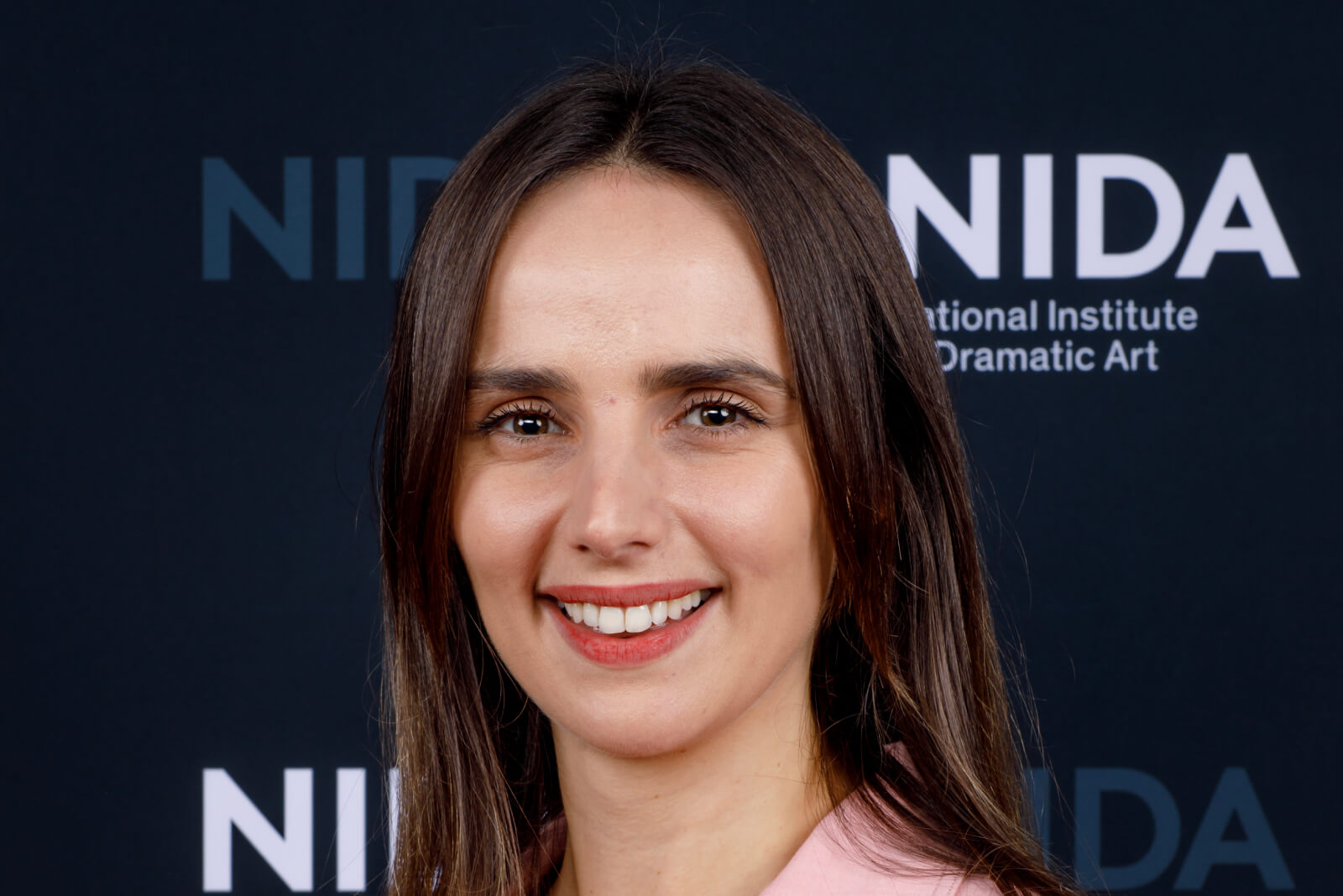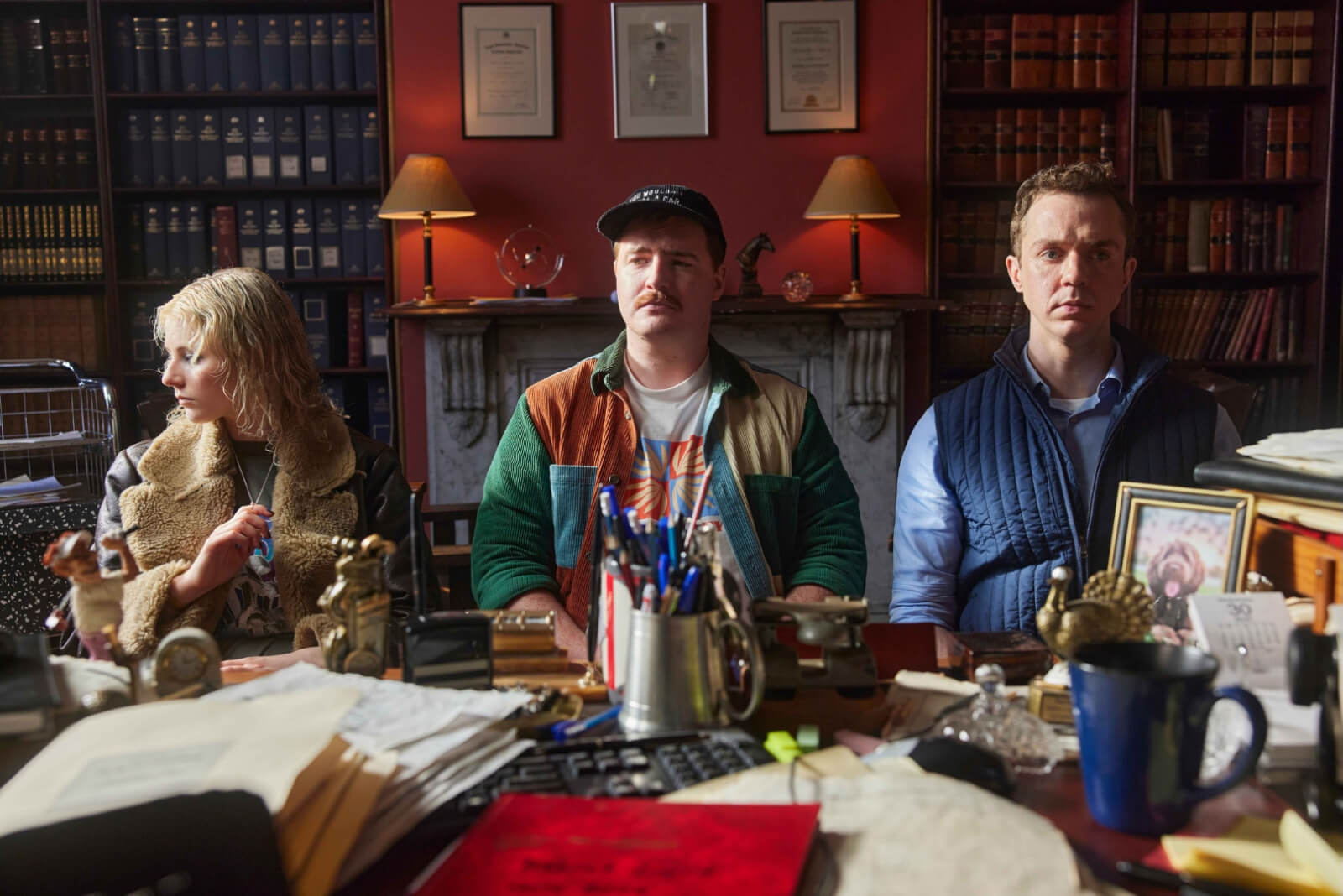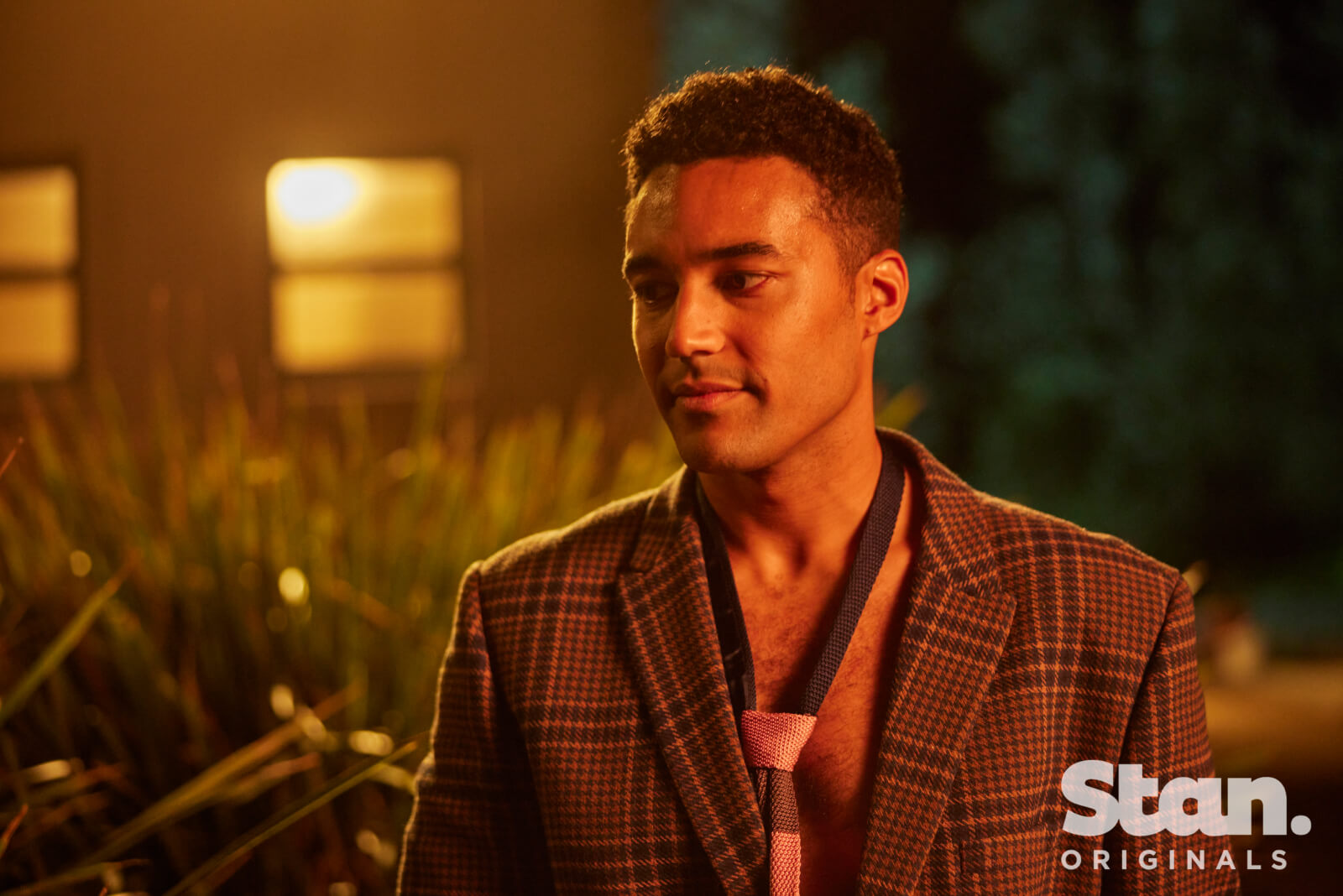
Image credit: Gretel Vella, courtesy of NIDA
NIDA alumna Gretel Vella (Writing for Performance, 2017) has created, written and executive produced her own TV series, Totally Completely Fine, now available on Stan in Australia and Sundance Now in the US. Her work spans a range of genres and themes, from the irreverent humour of The Great and Sunburnt Christmas to the nuanced portrayal of mental health and family in her new series. As a writer and creative producer, Gretel is one of Australia’s most exciting new storytellers. Read more about her creative process, her time at NIDA and her advice for aspiring writers.
NIDA: Your writing career has taken off in recent years, with shows like The Great and Totally Completely Fine. Can you tell us a bit about your writing process and where you draw inspiration from for your projects? Can you tell us a bit about how you became involved in these projects?
Gretel Vella: It’s a very specific feeling in my gut when I come to an idea that has legs. I always tend to start with a thesis or something I’d like to say about the world, and it really takes off from there. I know a lot of writers who try to anticipate what producers or streamers want and generate off this.
I think it’s more important, that the piece speaks to you, and if it does it will most certainly speak to someone else. Once I start to write I normally do a sort of brain dump first — just bullet point dialogue. This really takes the edge and pressure off, and then you can shape it from there. In terms of how I became involved in The Great, it was actually because of my time at NIDA. I was placed as a note taker in the Doctor Doctor room for two days where I met Tony McNamara (the show runner for The Great). He was very generous and offered to read some of my stuff and luckily, he liked it and thought we had a similar voice.

Image credit:Totally Completely Fine, courtesy of Stan
He offered me a gig as his PA for a year and in exchange he’d mentor me and hopefully get me on Doctor Doctor the year after. He stuck to his word, and we worked together on two seasons of that, before he eventually took me to London to work on The Great. I’ve been so fortunate to have a mentor like Tony who understands that those first credits are really important and there aren’t necessarily pathways in Australia to progress as a writer unless someone reaches out and decides to pull you up. He has most certainly done this for me, time and time again. Totally Completely Fine came about while I was working on The Great, actually. I was sort of writing it secretly at night, and then met Nat Lindwall, a producer at Fremantle during a general meeting my agent set up. We instantly bonded and I felt comfortable enough to show her my work in its early stages (which is very rare for me!).
She agreed the concept for the show was both terrifying and exciting, and since then has been my absolute champion. We pitched it to different streamers via Zoom at night in two different countries and quite quickly got a “yes”. Conception to the final product, has been about three years, which is very fast — I’ve been incredibly lucky!
NIDA: As a graduate of NIDA’s writing program, can you speak to how your time at the school prepared you for a career in the entertainment — particularly screen— industry?
GV: The NIDA writing course really taught me a lot about rigour. We were expected to write for a pretty big chunk of each day, and though it was tough at first, it really stood me in good stead for what is required when you step out into the industry.
There are days where you’re not going to feel like being creative or putting things down, but you’ll need to push through to get things in on time. While I was at NIDA, the writing course was also really focused on philosophy and ideas. We were encouraged to zero in on what interested and drove us as writers, which has obviously been invaluable to me in generating my own new work.
On a practical level, NIDA also helped me meet a bunch of industry professionals who I have taken onto jobs, or who have very kindly taken me. As I said, I met Tony McNamara when NIDA placed me in one of his rooms as a notetaker. I was only there for two days but it was enough for him to ask to read some of my work, and the rest is history!
NIDA: The Great has been praised for its sharp writing and irreverent humour. What were some of the biggest challenges you faced when developing the show’s distinctive tone?
GV: I think so much of that tone came from Tony. Most people don’t know this, but The Great existed as both a play and film script before it was commissioned for television, so I felt a lot of my job as a writer was about dissecting what made both those things funny and learning how to emulate them.
It kind of became this language in the room that people slowly learnt, and you quickly knew what would work in this world and what wouldn’t. I also spent a lot of time trawling through the history books and finding things that were actually true that were funnier than what we could have ever made up.
The scene where Catherine inoculates herself with the smallpox vaccine for example, or the episode where the court is terrified by a crocodile omen are both riffs on actual historical events.
Totally Completely Fine tackles some heavy subject matter, including mental health and addiction. What drew you to these topics, and how did you approach balancing the serious aspects of the story with humour? I was drawn to these ideas I guess because of personal experience. I’ve had periods of anxiety and depression since I was about 14, and then lockdown happened, and so many other people in my life started to experience what I had — it just felt like the right time to talk and write about it.
I began to research guardians of the places people would go to attempt suicide and started to wonder what it might look like of someone anxious and depressed had to take on this role. How would it be funny? How would it be sad? But also, what superpowers would this person have, having experienced the kind of emotions people on the edge were facing, too? I guess in terms of balancing the humour and more serious aspects of the show, we in the writers’ room established a very clear line from day one of what was and wasn’t funny.

Image credit: Totally Completely Fine, courtesy of Stan
We also really focused on placing a lot of comedy into the family B story, to cushion a lot of the more serious themes and ideas in the ledge A story. If we weren’t sure about something we had in the scripts, we were very lucky to have a whole team of industry professionals in the mental health sector — psychologists, people with lived experience, and Living Works Australia — who would also read them and offer feedback.
NIDA: In addition to writing, you’ve also worked as a producer on a number of projects. How do you balance those two roles, and what do you enjoy about each of them?
GV: When it comes to my producing work, I am something called a ‘creative producer’ which is a little bit different to the more practical producing work you might imagine.
I really do see it as an extension of my writing in a way because it’s about overseeing things like costume, set design and cinematography and making sure they are consistent with your creative vision alongside your director. In terms of balancing these two things, they sort of normally (hopefully) come one after the other. You write your scripts with a team of writers, and then the rest of the crew is brought on to collaborate on a vision, which is when you step into more of a producer role.
NIDA: Many writers talk about the importance of “finding their voice” in their work. How would you describe your own unique writing style, and how has it evolved over the course of your career?
GV: My voice has definitely evolved over the course of my career. Or at least I hope it has, because that means I’m learning and taking things with me. I initially got into writing because I liked making people laugh. But I learned quickly that you could also make people think too, and when that happened – I think my work streamlined and became more focused.
I guess I would maybe describe that voice as darkly comic. Even when a show is erring more on the side of a drama, I think I like to find the ridiculousness in the human experience, and little eccentricities and wounds in my characters. I would also describe my scripts as quite character based.
When I plot, everything comes from character and I let them take me on the journey, rather than trying to force anything.
NIDA: Finally, what advice would you offer to aspiring writers who are looking to break into the industry?
GV: I think the first thing I would say is treat your writing like it’s a job. Even when you’re not sure anyone is going to read it, sit down every day and work on your scripts, craft and stamina. There were times, particularly at the beginning of my career, where I’d be asked to rewrite hour long episodes of television overnight, and it really stands you in good stead if you are able to do that. It’s also becoming a reality of this industry that less and less people are writing on spec or have samples to share. If you are writing every day, you will have these things, and I cannot tell you how many jobs I’ve gotten because I’ve met someone spontaneously and was able to give them some of my stuff.
On a more practical level, getting yourself into a writers’ room as a note taker is a great place to start. I also always tell people to find an industry mentor if they can — people LOVE being asked, and it’s a great way to stay front of mind and learn more about your craft. Finally, I’d say (as cheesy as it sounds), kindness goes a long way in this industry. If you are a good person, you will be asked back into rooms over and over again.
Totally Completely Fine is a six-part dark comedy series led by Thomasin McKenzie and stars NIDA alumni Devon Terrell, Brandon McLelland and Contessa Treffone alongside Rowan Witt.
Totally Completely Fine launches on 20 April
The Great: Season 3 premieres on 5 May
Both shows are streaming on Stan.
